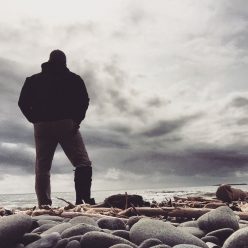Triggering Passages:
“Trade in canned fruit and other products, such as canned salmon, eventually were discontinued in the 1930s after the markets were deemed “too stable” to be profitable” (Newman 125).
“And yet biting is primarily a violence of childhood: it enacts the desire to destroy the other by consuming her, by obliterating the signs of her existence, or, at the very least, by reducing her physical appearance in the world one mouthful at a time” (Tompkins 171).
News Media Context:
“Trump want to cut EPA funding for Puget Sound by 93 percent”
Programs to clean up major water bodies were hard hit: The Great Lakes and Chesapeake Bay would also lose more than 90 percent of their EPA funding; cleanup funds for San Francisco Bay and Long Island Sound would be eliminate. www.kuow.org/post/trump-wants-cut-epa-funding-puget-sound-93-percent.
Discussion:
Tompkins passage on acts of violence, in particular, the way violence presents itself in eating culture is incredibly vivid. Especially in the way that biting is a childhood form of violence, we have to be taught and reinforced as children to not bite others; biting also seems to be an act of violence which crosses cultural lines and exhibits itself in almost all children.
The most triggering part of this passage is the end of the sentence when Tompkins says “by reducing her physical appearance in the world one mouthful at a time” (171), what a powerful message about eating culture and how whiteness seeks out otherness. If whiteness cannot kill otherness outright, it will slowly over time, one bite at a time do its best to obliviate it from the world.
The idea of canned salmon being too stable for markets is a concept I find very hard to rectify. I wonder if this is true today, when salmon are struggling to spawn, with little left over to fish, this could create and does create a very violent market. It brings me back to this concept of whiteness seeking to destroy the other and no market is a better example than the salmon market; when the very idea of ‘too stable’ would be laughable to the Native/Non-Native hoping to catch their winter food.
Both of these concepts now exhibit themselves in this proposed budget for the Puget Sound Region, or should I say the non-existent budget. Donald Trump wants the Puget Sound to be forgotten, possibly because the Otherness of the region is not in accord with his white agenda? This was a tough blow for Nisqually River Education Project (my internship) and other agencies working within the Nisqually Watershed. We, as organization, depend on EPA funding to provide some of our funding. Our work deals with environmental conservation, habitat restoration, salmon protections, treaty rights, and so many other issues is at the edge holding on waiting for the push that plummets us to our death or the rope that drags us back to steady ground.
Works Citied
Newman, Kara. The Secret Financial Life of Food: From Commodities Markets to Super Markets. New York: Columbia University Press, 2013. Print
Ryan, John. “Trump wants to cut EPA funding for Puget Sound by 93 percent”.KUOW. March 3 2017: Page (1). www.kuow.org. Web. March 5 2017.
Tompkins, Kyla W. Racial Indigestion: Eating Bodies in the 19th Century. New York and London: New York University Press, 2012. Print
